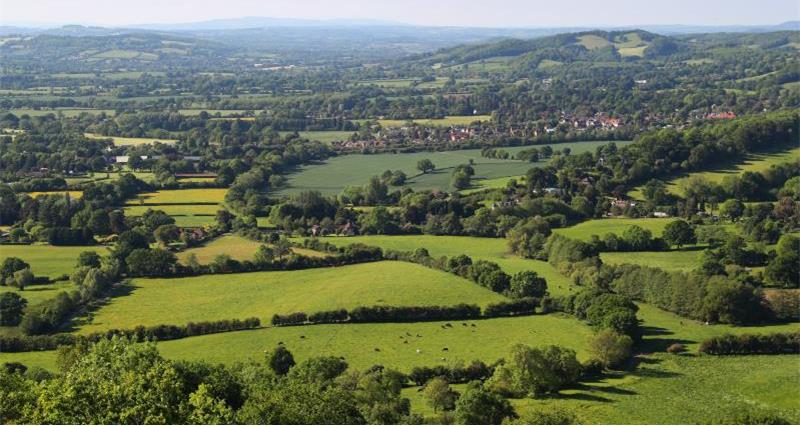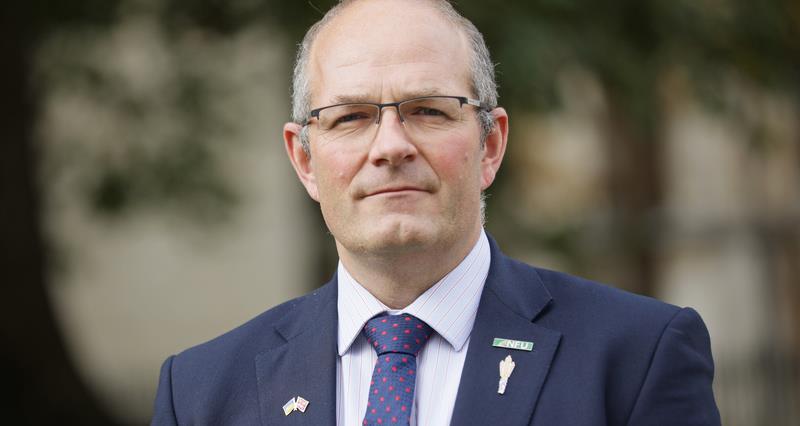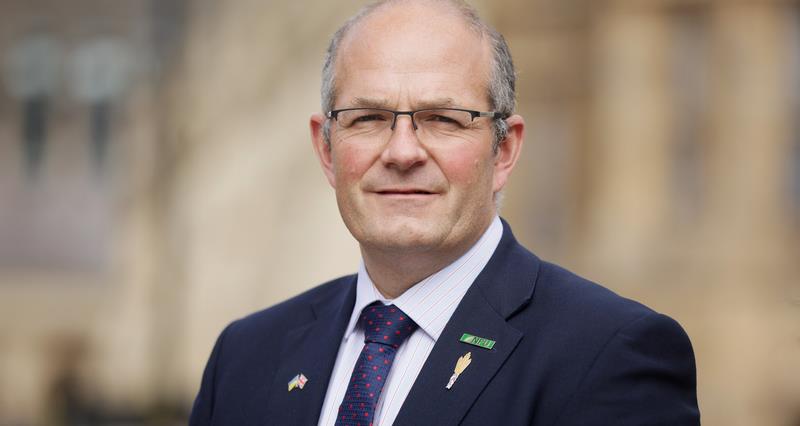Following the Budget on 30 October, the NFU’s economics advisers have examined the announcements that impact farming businesses.

Watch again: Budget breakdown – what you need to know
The economy
The OBR (Office of Budget Responsibility) estimates that the 2024 Autumn Budget policies will deliver a temporary boost to GDP in the short-term.
Real GDP growth is forecast to pick up from close to zero last year, to 1.1% this year, 2.0% in 2025, and 1.8% in 2026, before falling back to around 1.5% thereafter.
Beyond 2025-26 the stimulus measures announced in the Budget are expected to be offset by monetary policy. Consequently, the OBR forecast that the budget policies will leave the level of output broadly unchanged in 2029/30.
The OBR also predicts that the policies announced in this Budget will lead to a sustained increase in real government spending as a share of GDP.
However, government investment remains broadly flat, rather than falling by 0.75% as in the OBR’s pre-budget measures forecast.
Over the forecasted period to 2029/30, business investment is predicted to fall as a share of GDP as profit margins are squeezed, and the net impact of Budget policies reduces business investment.
Having fallen back to around the 2% target in mid-2024, the OBR expects CPI inflation to pick up to 2.6% in 2025 partly due to the direct and indirect impact of Budget measures.
Inflation is then forecast to slowly return to the 2% target by the 2029/30 forecast horizon as the effect of the budget measures fade.
The OBR also notes that a further escalation of the conflicts in the Middle East poses a risk to the inflation forecast due to its potential impact on energy prices. From its current level of 5%, the Bank of England Interest Rate is expected to fall to 3.5% in 2029/30.
The unemployment rate is forecast to fall from 4.3% this year to 4.0% in 2026 before returning to its estimated structural rate of 4.1% in 2028.
The OBR expects wage growth to fall from 4.7% this year to around 3.5% in 2025 and then average 2.25% over the remainder of the forecast period to 2029/30. Real earnings growth is around 2.5% in 2024, but then falls to around zero in 2026 and 2027.
The RHDI (Real household disposable income) per person, a measure of living standards, is predicted to grow by an average of just over 0.5% a year over the forecast to 2029/30.
But the profile is uneven, with strong real wage increases resulting in growth of 1.25% this fiscal year and next before RHDI per person stalls for two years in the middle of the forecast as real wage growth slows and taxes increase.
Inheritance Tax ‚Äď APR and BPR
The government announced it will reform APR (agricultural property relief) and BPR (business property relief) from April 2026.
In addition to the existing nil-rate bands, the 100% rate of relief will continue for the first £1 million of combined agricultural and business assets and will be 50% thereafter.
The government suggest this is to help protect family farms and businesses.
91≤÷Ņ‚opposed any change to APR in its Budget submission to the Chancellor.
The government confirmed it will extend the existing scope of agricultural property relief from 6 April 2025 to land managed under an environmental agreement with, or on behalf of, the UK government, devolved governments, public bodies, local authorities, or approved responsible bodies.
91≤÷Ņ‚called for an extension to APR to ensure that farmers were not deterred from entering into environmental schemes for fear of losing Inheritance Tax relief.
Also, unused pension funds and death benefits payable from a pension will be included in the value of estates for Inheritance Tax purposes from 6 April 2027. This could affect farming families that plan to pass over non-farming assets to non-farming heirs.
Agricultural budget
The agricultural budget for England has been confirmed at £5 billion over 2024-25 and 2025-26 and has been maintained at the current level of £2.4 billion for 2025-26.
£1.8bn will be set aside for ELMs (Environmental Land Management schemes) including SFI, Countryside Stewardship Higher Tier and Landscape.
Delinked payments
As stated above, Defra has announced it is prioritising directing investment to ELM schemes. This will include accelerating the end of the direct payment phaseout.
The fastest reductions in subsidies will be for those who received more than £100,000 in direct payments in 2020 as these businesses will receive no more than £8,000 in 2025.
Delinked payments were always planned to be reduced progressively through to 2027. In 2024, reductions were 50% for the lowest payment band, increasing to 70% for amounts in the highest payment band.
However, for 2025, Defra plans to apply a 76% reduction to the first £30,000 of a payment, while making no payments for any portion of a payment above £30,000.
For example, a payment of £40,000 would have a 76% reduction applied to the first £30,000 of the payment (a reduction of £22,800) and a 100% reduction would be applied to the next £10,000 (a reduction of £10,000).
The payment would be reduced by £32,800 to £7,200. This rapid reduction in delinked payments will have a significant, detrimental impact on farm businesses who have not been expecting such a severe cut in direct payments.
See: Delinked payments ‚Äď read our latest guidance
Capital Gains Tax increase
The government announced that the main rates of CGT (Capital Gains Tax) will be raised to 18% and 24% from 30 October 2024. It was confirmed that BADR (Business Asset Disposal Relief) will remain in place.
91≤÷Ņ‚suggested that if CGT rates were increased in the Budget, they should be adjusted to remove the effect of inflation.
We are disappointed this is being ignored, as long-term business gains will suffer a much higher effective rate of tax.
National Minimum Wage
The government has announced NMW (National Minimum Wage) known as NLW (National Living Wage) rates for 2025.
| Őż | NLW rate | ¬£ increase | % increase |
|---|---|---|---|
| NLW for workers aged 21 and over | £12.21 | £0.77 | 6.7% |
| Rate for workers aged 18-20 | £10.00 | £1.40 | 16.3% |
| Rate for workers aged 16-17 | £7.55 | £1.15 | 18% |
| Apprentice rate | £7.55 | £1.15 | 18% |
| Accommodation offset | £10.66 | £0.67 | 6.7% |
Government policy is to keep the NLW at two thirds of median earnings, but in an important change to the policy of the last government also to take into account the cost of living and trends in inflation to March 2026.
The rate increase to £12.21 is above current average growth in regular earnings which was 4.9% in the year to August 2024. The new rate of £12.21 is expected to represent a real terms increase to March 2026, hence protecting the living standards of low paid workers.
It is also the government’s ambition to reduce the age threshold of the NLW to 18 years over time and the 16.3% increase to the 2025 rate for workers aged 18 to 20 years is a move to reduce the gap between youth rates and the adult rate with the ultimate aim of eliminating the gap completely over the coming years.
91≤÷Ņ‚asked as a minimum that the accommodation offset rate increases at the same percentage rate as NLW. This is reflected in the 6.7% increase to amount that employers can deduct from wages in respect of accommodation and can be included in a NLW calculation.
Budget increases for planning services
Nationally Significant Infrastructure Projects (NSIP)
Along with a raft of other budgetary increases, the government has committed to an increase of £5 million for the NSIP (Nationally Significant Infrastructure Projects) regime.
NSIPs are projects that are considered too large scale or too technical for local authorities to determine themselves, so they are taken to a national body. The body will permit or refuse large infrastructure projects, as well as negotiates the terms of permissions.
The funding increase of £5 million will help support projects such as road upgrades, new electrical infrastructure and power generation.
The minimal increases will likely lead to a slight increase in the number of large infrastructure projects in a shorter amount of time.
91≤÷Ņ‚welcomes the increase in funding which will support stakeholder engagement and may increase diversification options for members.
Local Planning Authorities
Local Planning Authorities, which determine planning applications and create local planning policy are also seeing a budgetary boost of £46 million.
91≤÷Ņ‚highly welcomes this increase in spending. However, the new budget for planning authorities still pales in comparison to budgets a decade ago, being at just 10% of what has been lost.
The government has previously announced and today confirmed the hiring of ‚Äúhundreds of new Inspectors‚ÄĚ, assumed to mean planning officers, which Labour has previously stated to be 300 officers between 326 Local Planning Authorities.
91≤÷Ņ‚has had a strong, long standing ask to have a fully funded and resourced planning system.
91≤÷Ņ‚especially has interest due to the disproportionate impact on more technical and specialised sectors such as farming and agriculture.
91≤÷Ņ‚has long stated that delays from lack of resources and been one of the biggest blockers to growth and modernisation in the agricultural sector.
Again, the budget increase is welcome but does not go nearly far enough to solve issues.
Income tax
In the finer detail of the Budget documentation there is an announcement on the treatment of DCPU (Double Cab Pick Up) vehicles suggesting that from 1 April 2025 for Corporation Tax, and 6 April 2025 for income tax, DCPUs will be treated as cars for the purposes of capital allowances, benefits in kind, and some deductions from business profits.
The existing capital allowances treatment will apply to those who purchase DCPUs before April 2025.
Transitional benefit in kind arrangements will apply for employers that have purchased, leased, or ordered a DCPU before 6 April 2025. They will be able to use the previous treatment, until the earlier of disposal, lease expiry, or 5 April 2029
This was announced earlier this year and after the NFU strongly objected this decision was reversed with legislation to follow. We are urgently seeking clarification from government.
Abolishing the FHL (Furnished Holiday Lettings) tax regime
From 6 April 2025, the government will be abolishing the FHL (Furnished Holiday Letting) tax regime. This will mean short-term and long-term lets will be treated the same for tax purposes.
91≤÷Ņ‚previously opposed an abolition in 2009 and is extremely concerned about this decision and urged for a full consultation ahead of the proposed abolition of the FHL regime.
The government has encouraged farmers to diversify in order to make farm businesses more resilient and many of our members operate their Furnished Holiday Lettings as a business operation rather than simply an investment.
The FHL regime is an important relief to many of these members. It is common for members’ farmhouses and farm cottages to have agricultural occupancy ties and where former farm buildings have been converted to FHLs, planning conditions often tend to limit their use solely to holiday lettings and prevent a sale separate to the farm.
Consequently, the NFU believes that a full abolition is likely to have an unfair and adverse impact on many of our members’ businesses, and on the wider rural economy which relies on tourism.
CBAM (Carbon Border Adjustment Mechanism)
The government has published its response to the March 2024 consultation on the introduction of a UK CBAM (Carbon Border Adjustment Mechanism). The response confirms that the UK CBAM will be introduced on 1 January 2027, placing a carbon price on goods imported into the UK that are at risk of carbon leakage.
This includes aluminium, cement, hydrogen, iron & steel and importantly for UK farmers ‚Äď fertiliser sectors.
The implementation of the UK CBAM will increase the cost of fertiliser which is one of the primary costs of production for UK farmers and growers. The impact on domestic production costs will in turn drive downstream leakage impacts through undermining the competitiveness of domestic agricultural production, both in domestic and international markets, against agricultural imports from jurisdictions where production utilises fertiliser inputs which are not subject to a carbon pricing regime.
Farming Recovery Fund
Defra will immediately pay out £60 million through the Farming Recovery Fund to support farmers affected by unprecedented extreme wet weather last winter.
This was always intended as an exceptional intervention and Defra and the government need a longer term and financially sustainable solution to managing risks of the increasingly changeable climate.
91≤÷Ņ‚continues to call for the government to dedicate sufficient funding for maintaining and improving flood defences and managing waterways to protect farmland and allow for swifter recovery.
See: Flood recovery funding ‚Äď essential information
National Insurance Contributions paid by employers
The rate of NICs (National Insurance Contributions) paid by employees remains unchanged, but the Chancellor announced that the rate companies pay will increase by 1.2% to 15%.
Alongside this increase the per-employee threshold, at which employers start to pay National Insurance, will be reduced from £9,100 per year to £5,000 per year.
The employer’s allowance available to applicable businesses will increase from £5,000 to £10,500 meaning that a discount of £10,500 will be available on an employer’s overall national insurance bill.
The government estimates that the rate increase will generate an extra £25 billion in tax revenue, but the increase will increase the cost of employing workers for businesses.




